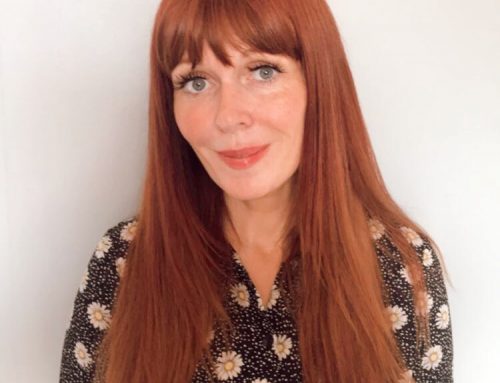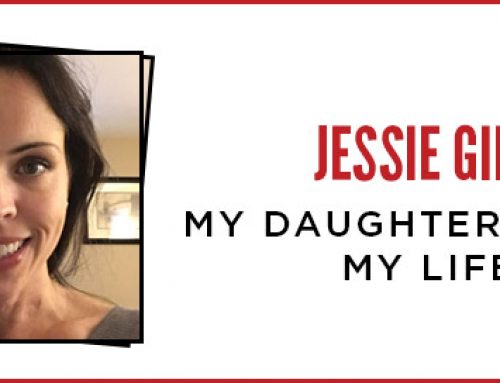ENDING STIGMA ESSAY
by Bif Naked
I moved to Vancouver, British Columbia, to these unceded lands of The Coast Salish Territories, and made my home here in 1991. Vancouver held so much promise, and was rumored to be a great solution for people living in the colder climates of Canada, who may be looking for jobs, looking for education opportunities, or looking for a fresh start. People come to Vancouver in droves, and it holds them by their hearts and never lets go.
The guys in my first band, GorillaGorilla, and I, lived over on Rupert Street at the top of a long hill, down which we could skateboard, without aid of pushing feet, all the way to the bottom, to Broadway Street, where we might catch a bus to go downtown—either to work, or to rehearsal space, or to see a gig—many of which were played by friends in other bands. We could have never done that in Winnipeg (from where we’d just moved) and we were in awe of the differences we were discovering on the West Coast. It was a rich music, skateboard, and art culture, and we were thriving despite our poverty. Life was serendipity. We had simple and earnest intentions, we never gave up on our dreams, and collaboratively worked toward what we hoped would be “success”.
This work ethic, and these dreams, are natural for most people. In fact, the majority of people are working toward a goal and endeavor to transcend poverty and struggle. Most people are trying to have a better life.
That’s how things were for my friend Lorainne.
I met Lorainne on the streets of Vancouver, in 1991. Burrard Street, to be exact. Burrard and Robson.
She was a panhandler, asking passersby for change. She looked like she was about sixty years old, with hair not totally grey but it was just so hard to tell as she was somewhat unkempt. And awkward.
Lorainne never appeared to be drunk, but her swollen face and big, red nose told me much about her personal life. She never had a warm coat, but was in snow boots, and was at the same corner, downtown, every day. She went there at eight a.m. and left at 10 a.m. each morning. It was her routine.
On my way to work, every day, I said “hi” to her and gave her the extra few dollars I carried with me to the bus stop where I jumped on and went to my day job in a printing shop. Sometimes two dollars, sometimes five, but I always made sure I had change jingling in my pocket as I went out the door.
I made just enough money from my cheque to pay rent, pay electric bill, and set aside a few dollars for food and supplies and bus fare. It worked out to about seven dollars a day and when I saw Lorainne I could not pass her by without giving her something. Anything.
Eventually, I started to strike up conversations with her, and she began to let her guard down.
Her speech was unusual and she had an emotionless way about communicating. Lorainne never smiled or frowned, she just spoke in a demonstrative and loud voice, calling me by name if she happened to see me walking toward her.
“BETH! OH HELLO BETH!” she would yell from half-a-block away. I always waved until I approached Lorainne and eventually, we would hug hello.
I began to ask Lorainne questions about herself.
Where did she live? (“SUBSIDIZED HOUSING” she yelled.)
Does she work? (“THIS IS MY JOB. I COME EVERY DAY.”)
Is she married? (“I HAVE A BOYFRIEND HE MAKES ME SPAGHETTI.”)
Everything was always matter-of-fact, and her answers were not always consistent, so I never really knew if the things she told me were true. I just wanted to know how she got there. I wanted to piece together how my friend came to be…I wondered how she became this panhandler lady.
What I eventually pieced together, over the next decade or so, brought me to a place of understanding and acceptance about Lorainne.
Lorainne was living in Ottawa, for most of her life. As an adult, She was working a desk job for the government, and putting her daughter through school. Unmarried but happy, Lorainne loved life, loved her job, and most of all, loved her daughter.
Then everything shifted for her, and life as she knew it blew apart. Lorainne’s daughter was killed, suddenly, and that was the trauma that may have triggered Lorainne’s disorder.
Like many people, grief and response to loss is the most distressing event in life. But for Lorainne, the result of this catastrophic event was real damage to the psyche. The death of her daughter was so traumatic psychologically for Lorainne, that she developed PTSD, depression, and chronic psychosis trying to cope. Eventually, substance abuse—in Lorainne’s case, alcohol—overtook her life, and her active psychosis increased in frequency. She no longer worked, went home, or spoke with friends and family. She became homeless. She often experienced being in a catatonic state. It was as if her brain was changed, and her old life was never again to be.
It is possible that her excessive alcohol intake, plus the psychological damage, may have contributed to the development of her chronic, substance-induced psychotic disorder. This poor quality of life for Lorainne included impaired social cognition, poor functional ability, disorganized thinking and speech, and a frequent state of confusion.
I do not know, and was never able to determine, whether or not Lorainne had any pre-existing psychopathology that may have been a factor. I do not know if she had a history of illness, or poor adjustment before onset. Plus, excessive alcohol abuse can sometimes present itself as illnesses like schizophrenia, and I do not know Lorainne’s medical history.
What I do know is that Lorainne has a tragic story of loss that led her to be where she is now, and who she is now.
I know this is true for every person I see on the street. Each individual has a story. Each individual has a story worth telling, but more importantly, worth listening to.
I am glad Lorainne and I became friends. She never accepted my help, my offers to walk her home, my offers of clothing, groceries, toiletries, even refused anything over a twenty dollar bill. In fact, it would stress her out and she became agitated.
No, Lorainne didn’t ask anything of me, except my daily hugs and my friendly exchange. In return, I received the same from her.
We are very blessed by the friendships in our lives and sometimes, these seemingly small things, actually make all the difference for people.
People like Lorainne.
And people like me.
This essay was originally featured on Stigma Fighters Canada
Bif Naked is a celebrated and notorious performer in music, TV, film, and dance, and a tireless advocate and Humanitarian. Orphaned in India, emancipated by punk rock, and empowered by surviving breast cancer, kidney failure, heart surgery, divorce, and surviving as a Woman in The Entertainment Industry for twenty-five years, Bif has transcended any and all obstacles placed in her path to become one of the world’s most unique, recognizable and beloved icons. It is because Bif is such a tremendous performer and musician, that she is able to seamlessly and successfully explore and record other mediums, like writing, painting, choreography, and of course- other genres of music. Inspired by life and experiences, Bif’s writing is at the forefront and has become a tool for her advocacy. “We must continue to raise awareness and keep going.” When not touring, Canada’s Sweetheart works as an activist, is recording a new record, and is editing her juicy memoirs. You can learn more about Bif and her work here She has been featured on The Globe and Mail as well as The Huffington Post. Find her on Facebook , Twitter and follow her on Instagram







Oh my God this made me cry. Too close to home, this. (In a good way.) My heart is so happy (to quote Kai Lan) that there are people like you writing things like this. ♡
Thank you for your incredible story, Bif. We are honored to have you here on Stigma Fighters. Lorainne’s story is one that will stay with me, because it is raw, deep and true. You are amazing.